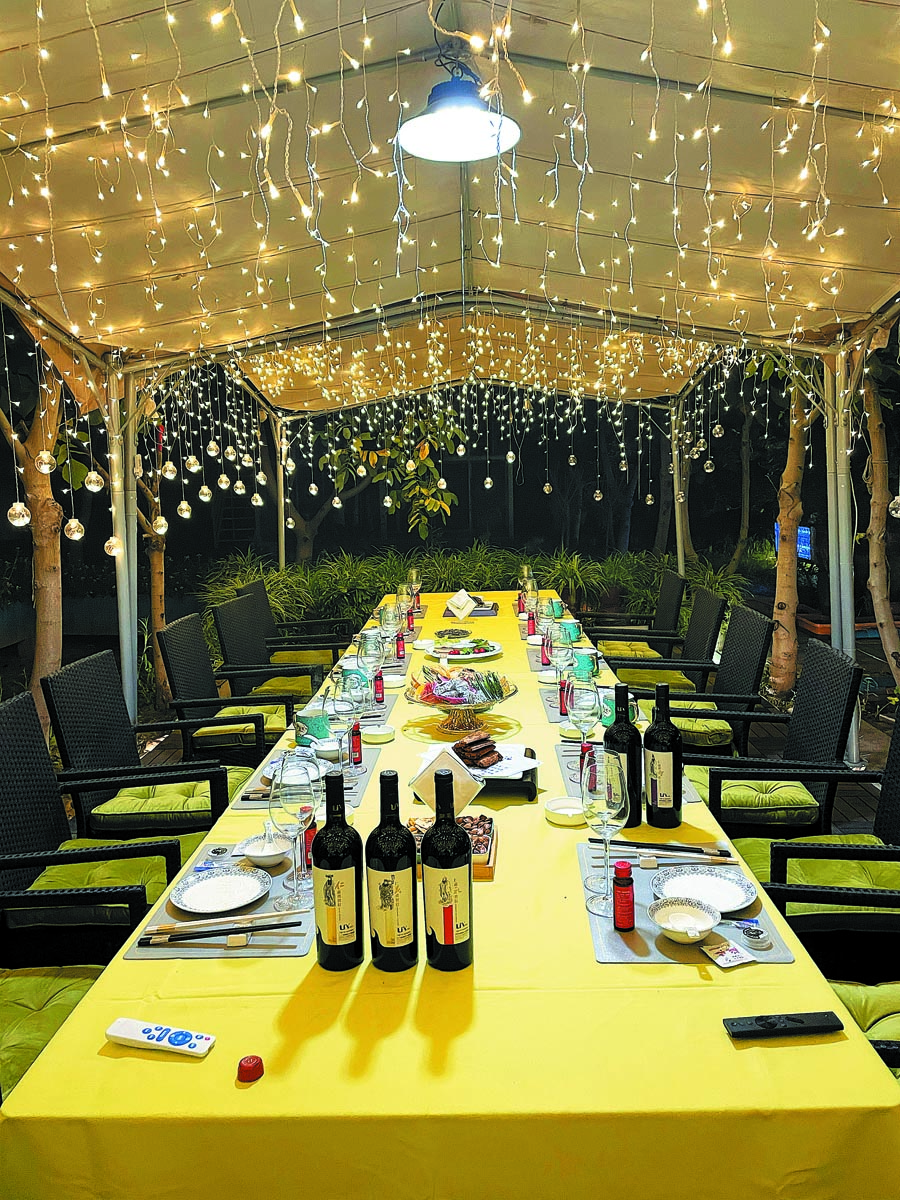

Against a backdrop of classical music, two young women sip red wine and take selfies by a large window overlooking a seemingly boundless vineyard.
The scene is not taking place in Bordeaux, but in northwest China's Ningxia Hui Autonomous Region, which was once known for its vast desert.
"It is pretty relaxing here," said Zhang Shu, holding a wine glass. She flew more than 2,000 kilometers from south China's Guangdong Province to Ningxia with a friend, especially to taste what they deem the "best wine in China."
"You can enjoy the wine here and be shown around in the winery -- its cellars, the production line and so on," she told Xinhua. "Staff here will teach you how to taste wine if you are a novice."
A rising star on the global wine map, Ningxia boasts over 500,000 mu (33,333 hectares) of vineyards, almost a third of the nation's total. Approximately 138 million bottles of wine are produced each year, with a combined output value of 34.3 billion yuan (about 5 billion U.S. dollars).
The foot of Helan Mountain, which was desert land three decades ago, is now covered in green and home to 116 wineries. Another 112 are currently under construction.
The Xige Winery, which Zhang and her friend visited, is one of the wineries located at the foot of the mountain. The duo tasted a variety of wines, including white, red, rose and sparkling wines.
Ma Yingnan, who is in charge of tourism at Xige, said the unique climate and soil conditions of Helan Mountain have endowed the wines with a special flavor, helping them win numerous awards at international wine competitions.
In 2021, the National Open Development Comprehensive Pilot Zone for the Grape and Wine Industry, the first zone of its kind, was established in Ningxia in a bid to transform the region into the Bordeaux of China.
The regional government has hosted a range of events to promote tourism, including a marathon and wine-themed music festivals. Two iterations of the China (Ningxia) International Wine Culture and Tourism Expo have also been held in the region to boost its international popularity.
Ma noted that hotel rooms at the Xige Winery are often fully booked between May and October, when they receive visitors from across China and around the world.
"Five to 10 percent of visitors are from overseas," Ma said. "We are new to the wine industry, so many of them have said they were shocked to taste our wines and find them unexpectedly savory."